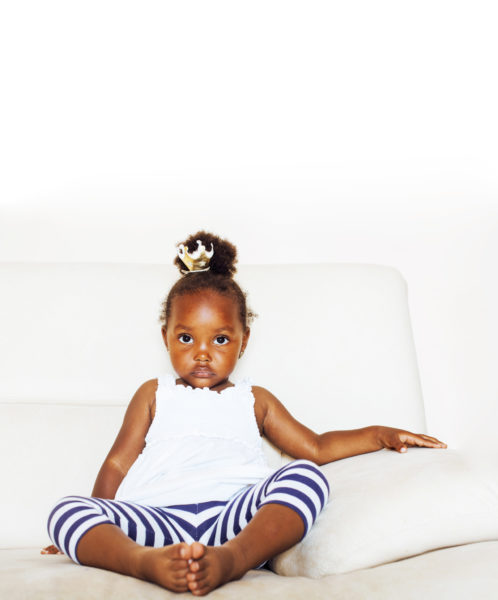Features
Oby O: 15 Provisions in the Child Rights Act that Protect the Nigerian Child
 In Nigeria, there is a relative preference for younger domestic workers. They are considered more energetic, submissive, easier to direct around, and cheaper – as compared to older domestic workers. However, what a lot of people tend to ignore is that there is a legal framework for the protection of the Rights of a Nigerian child – under the Child Rights Act 2003 (CRA).
In Nigeria, there is a relative preference for younger domestic workers. They are considered more energetic, submissive, easier to direct around, and cheaper – as compared to older domestic workers. However, what a lot of people tend to ignore is that there is a legal framework for the protection of the Rights of a Nigerian child – under the Child Rights Act 2003 (CRA).
Recently, I was having a conversation with a group of people when someone mentioned that she only employed nannies who were 15 years old (and below) . According to her, if they were older, they would be unteachable and sluggish. I was appalled, not only because she seemed like a well-educated, cultured, woman, but mostly because she did not recognize the irony when I pointed out that she was literally employing a child to look after a child.
I mentioned to her that hiring a 15 year old as a nanny or house-help in Nigeria is a criminal offence – under the CRA. She justified the whole thing by arguing that she was helping the young girl by paying her a salary, and sending her to a public school. She added that that an older nanny could “steal her husband from under her nose”.
If we are to eradicate the flagrant disregard of the rights of children in Nigeria, then the Child Rights (as provided under the Act) must be well known among parents, guardians, teachers, employers of labor, providers of services – and every citizen.
So, in an attempt to be the Friend Who Gives You Unsolicited but Useful Advice, here are 15 Child Rights contained under the CRA which may interest you:
- Every parent, guardian or person having the care and custody of a child under the age of two years must ensure that the child is provided with full immunization; failing which such parent, guardian or person having the care of a child is liable (on conviction) for a fine not exceeding five thousand naira or imprisonment for a term not exceeding one month.
Additionally, or in substitution to the penalty, a Court may make an order compelling the parent or guardian of a child to get the child immunized.
- A child may bring an action for damages against a person for harm or injury caused to the child wilfully, recklessly, negligently or through neglect before, during or after the birth of that child. This can apply to persons born with defects caused by negligence of the parents.
- Also, where the father of an unborn child dies intestate, the unborn child is entitled, if he was conceived during the lifetime of his father, to be considered in the distribution of the estate of the deceased father. Where the mother of an unborn child dies intestate before the child is delivered, the unborn child is entitled, if he survives his mother, to be considered in the distribution of the estate of the deceased mother.
- Every child is entitled to respect for the dignity of his person and no child should be;
– Subjected to physical, mental and emotional abuse, neglect, maltreatment and defilement – including sexual abuse.
– Subjected to torture, inhuman or degrading treatment or punishment. Consequently, this prohibits corporal punishment, punishment that involve physical harm, cutting, burning, etc.
– Subjected to attacks upon his honor or reputation.
– Held in slavery or servitude while in the care of the parents, legal guardian or school authority having the care of the child. This includes prohibition against engaging children of school age to hawk on the road, beg for alms, prostitution, etc.
- No child shall be subjected to any forced or exploitative labor; or employed as a domestic help outside his own home or family environment, or work in an industrial undertaking, or employed to work in any capacity except where he is employed by a member of his family on light work of an agricultural, horticultural or domestic character.
- No person shall provide day care for children under the age of six years in any premises within a State unless he is registered by the State Government, and a person who does so, without reasonable excuse, commits an offence.
- Additionally, no person shall act as a child minder on any domestic premises: within a State unless he is registered by the State Government, and every State Government shall keep a register of persons who act as child minders on domestic premises within the area of the appropriate authority and provide day care for children under the age of six years on premises other than domestic premises within the areas of the State Government.
- It is against the law to tattoo or mark the skin of a child, any person who tattoos or makes a skin mark on a child commits an offence under the Act.
- No person under the age of 18 years is capable of contracting a valid marriage, and any marriage so contracted is null and void and of no effect whatsoever. In addition, parents and guardians are precluded from arranging or facilitating child betrothals.
- No foster parent shall marry any child fostered by him and a foster parent who marries a child fostered by him commits an offence under this Act and is liable on conviction to imprisonment for a term not exceeding fourteen years.
- Where the father and mother of a child were not married to each other at the time of the birth of the child, a Family Court may on the application of the father, order that the father shall have parental responsibility for the child; or on the application of the mother, order that she shall have parental responsibility for the child; or the father and mother may by agreement have joint parental responsibility for the child.
- The Act prohibits marriage between a person who has adopted a child or a natural child of the person who adopted the child and the adopted child and any such marriage shall be null and void.
- A person who receives or agrees to receive money or a reward as an inducement to foster a child; or receives or agrees to receive money or any reward in order to facilitate arrangements to foster a child or gives or agrees to give money or reward to secure consent of a person to foster a child, commits an offence under this Act.
- Every child has the right to free, compulsory and universal basic education and it shall be the duty of the Government in Nigeria to provide such education. Likewise, every parent or guardian shall ensure that his child or ward attends and completes his primary school education; and junior secondary education. A female child who becomes pregnant, before completing her education shall be given the opportunity, after delivery, to continue with her education, on the basis of her individual ability.
There are so many other rights of a Nigerian Child contained in the CRA, but diverse reasons – ranging from unawareness, cultural differences, poverty, educational background, religious beliefs, among others, are behind the non – implementation of the Childs Rights Act in the country.
You would be surprised the number of parents, guardians, and school authorities, who don’t know about the existence (or provisions) of the Child Rights Act.
Together, in our own little way, let’s do what we can to inform people about (and likewise protect) the Rights of children – so that every Child could have an equal opportunity to grow, survive, be protected and participate in decisions that impact their lives.
Which of these Child Rights did you not know about, and which do you think we need to pay more attention to?
Photo Credit: © Yunuli123 | Dreamstime

























